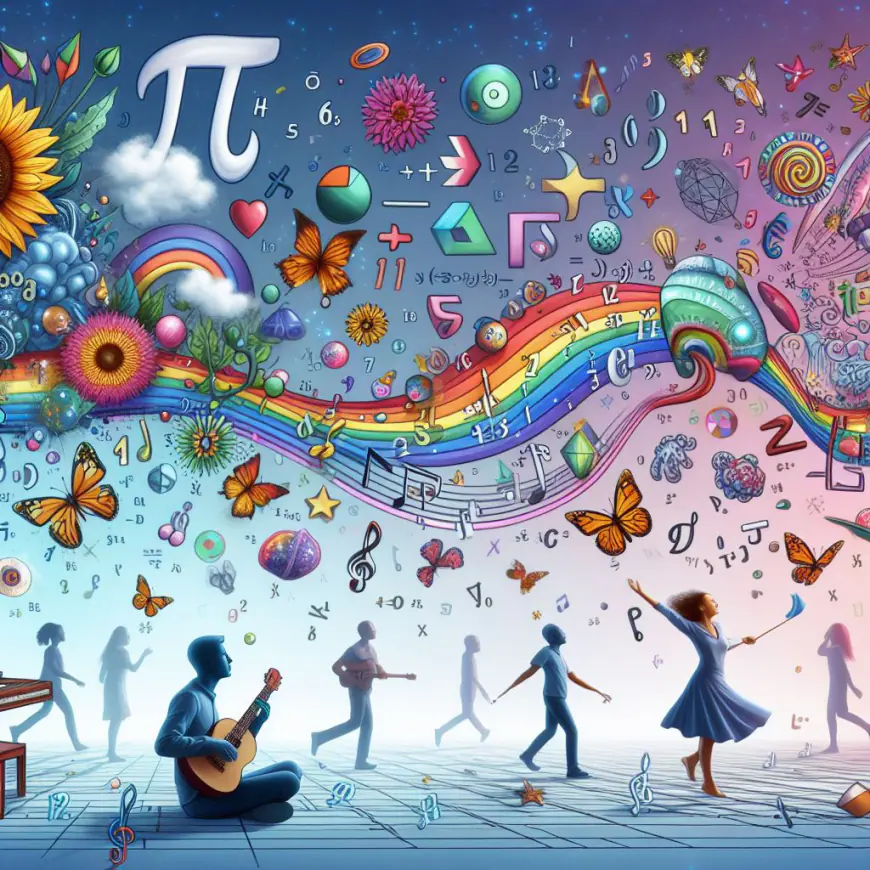What Would Change In The World If There Were No Mathematics?
What if math vanished? Discover the repercussions on science, art, and our daily lives.

The Impact of a World Without Mathematics
Introduction
Imagine a world where numbers, equations, and mathematical concepts vanish overnight. A reality devoid of mathematics would be profoundly different, affecting every aspect of our lives. From the mundane to the extraordinary, let’s explore the hypothetical consequences of a math-less existence.
The Foundation of Science and Technology
Mathematics is the bedrock upon which science and technology rest. Without it, our understanding of the natural world would crumble. Scientific discoveries, from the laws of motion to quantum mechanics, rely on mathematical models. Imagine no calculus to describe the motion of planets or no statistical analysis to validate experimental results. Our technological progress would stall, leaving us without smartphones, space exploration, or medical advancements.
Economics and Commerce
In a math-less world, economic systems would collapse. No more stock markets, interest rates, or GDP calculations. Without algebra, businesses couldn’t optimize production or predict market trends. Currency valuation would be arbitrary, leading to chaos in global trade. Imagine negotiating a loan without percentages or calculating profits without basic arithmetic. The absence of math would render commerce inefficient and unpredictable.
Architecture and Engineering
Mathematics shapes our physical environment. Architects use geometry to design buildings, ensuring stability and aesthetics. Engineers rely on calculus to analyze stress distribution in bridges and skyscrapers. Without math, structures would lack precision, leading to collapses and disasters. Imagine a world where the Eiffel Tower stands crooked, and bridges crumble due to faulty calculations.
Medicine and Health
Healthcare would suffer immensely. No statistics to track disease outbreaks, no probability theory to assess treatment effectiveness. Doctors couldn’t prescribe accurate dosages, and surgeries would be guesswork. Imagine no epidemiology to combat pandemics or no modeling to predict the spread of infectious diseases. Life expectancy would plummet, and medical breakthroughs would remain elusive.
Art and Music
Mathematics permeates art and music. The Fibonacci sequence inspires visual compositions, while harmonics follow mathematical ratios. Imagine no musical scales, no fractal patterns in paintings, and no symmetry in sculptures. Artistic expression would lose its elegance, and creativity would lack structure. The Mona Lisa might resemble a Picasso, and Beethoven’s symphonies would sound discordant.
Everyday Life
In our daily routines, math is omnipresent. No clocks to tell time, no calendars to schedule events. Cooking without measurements would yield unpredictable results. Imagine navigating without coordinates or calculating tips at restaurants. Even simple tasks like splitting a pizza would become contentious. Our reliance on math is so ingrained that its absence would disrupt the fabric of society.
The Arts: A World of Chaos and Abstraction
1. Visual Arts
In a math-less universe, paintings and sculptures would lose their geometric precision. The Golden Ratio, which has graced countless masterpieces, would remain undiscovered. Imagine the Mona Lisa with asymmetrical features or Van Gogh’s “Starry Night” lacking its mesmerizing spirals. Art would become subjective chaos, devoid of mathematical harmony.
2. Music and Harmony
Music, too, would suffer. No scales, no harmonics, no mathematical patterns in melodies. Imagine Beethoven composing without mathematical intervals or Bach’s fugues missing their intricate structures. The symphony of life would be replaced by dissonance. Even the simplest nursery rhyme would lack rhythm, leaving us yearning for mathematical order.
Communication and Language
1. Written Word
Mathematics influences language. Without it, our written communication would change dramatically. No precise measurements, no coordinates to describe locations, and no statistical analysis to validate claims. Imagine writing a novel without counting words or expressing time without numerical units. Our literary landscape would be fragmented, and poetry would lose its meter.
2. Linguistics and Syntax
Grammar and syntax rely on patterns—mathematical patterns. Sentence structures, verb conjugations, and word order all follow mathematical rules. Imagine a world where sentences lack coherence, where metaphors don’t align, and where puns fall flat due to missing numerical playfulness. Language would become a cryptic puzzle, leaving us lost in translation.
Nature and the Cosmos
1. Celestial Mechanics
Mathematics governs the cosmos. No Kepler’s laws to describe planetary orbits, no calculus to predict comet trajectories. Imagine a night sky devoid of mathematical elegance—a chaotic dance of celestial bodies. No equations to unravel the mysteries of black holes or calculate the speed of light. Our cosmic curiosity would remain unquenched.
2. Natural Phenomena
Weather patterns, tides, and ecosystems—all rely on mathematical models. Without them, predicting storms would be guesswork, and ecological balance would falter. Imagine no Fibonacci spirals in sunflowers or fractal patterns in snowflakes. Nature’s beauty would lose its mathematical poetry, leaving us with a fragmented understanding of the world.
Philosophy and Reasoning
1. Logic and Rationality
Philosophy thrives on logic. Without mathematical reasoning, philosophical debates would lack rigor. Imagine no deductive proofs, no syllogisms, and no quantification of existence. Questions about reality, morality, and consciousness would remain unanswered. The pursuit of truth would stumble in the dark, devoid of mathematical enlightenment.
2. Existential Questions
Mathematics underpins existential inquiries. No probability to ponder chance, no infinity to explore eternity. Imagine contemplating existence without mathematical metaphors—the void of zero, the infinite expanse. Philosophers would grapple with unquantifiable concepts, and Descartes might never utter “Cogito, ergo sum.”
Conclusion
Mathematics isn’t just a subject in school; it’s the language of the universe. A world without math would be chaotic, uncertain, and devoid of progress. So, let’s cherish the elegance of equations, the beauty of prime numbers, and the power of mathematical thinking. After all, in this mathematical tapestry, we find the threads that weave our existence.
What's Your Reaction?








































